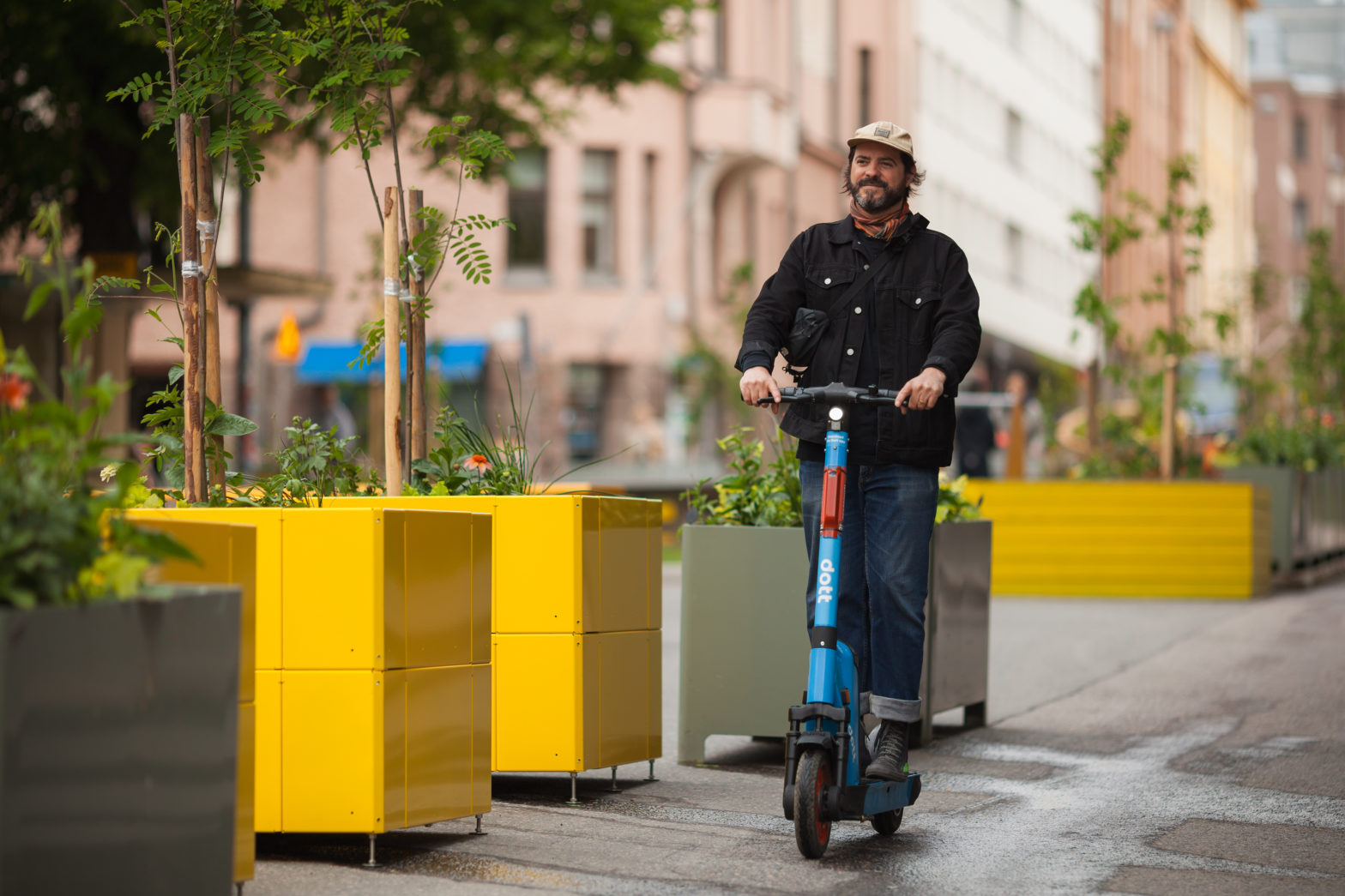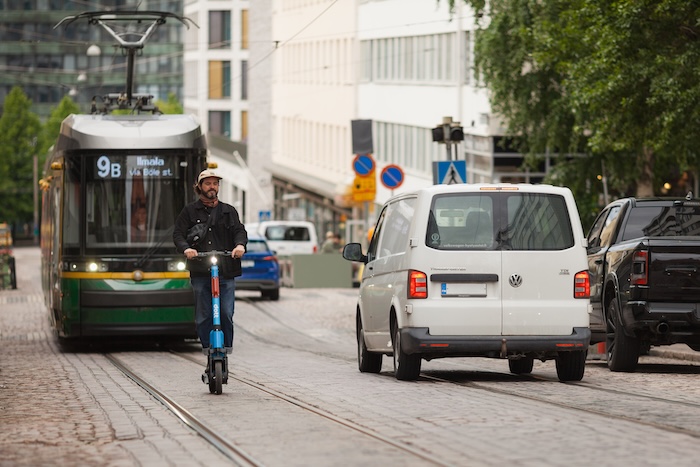
Helsinki trials AI to boost e-scooter safety
26 June 2025
by William Thorpe
A new six-month pilot in Helsinki is aiming to make e-scooters safer using artificial intelligence and real-time data.
The initiative, which brings together international micromobility and data companies, is being led by Forum Virium Helsinki through the EU-funded ELABORATOR project.
The pilot equips 40 Tier-Dott shared e-scooters with AI-powered sensors developed by UK firm See.Sense. The sensors collect live data on rider behaviour and road conditions, including braking, swerving and collisions. The data is analysed to identify high-risk areas and behaviours before accidents occur. French company Vianova is integrating the findings into its Mobility Data Platform to support city-level planning and safety measures.
“The aim is to generate high-quality data that helps us understand risky situations on a network level, where they occur and how frequently. This allows cities to take proactive rather than reactive measures,” said Noora Reittu, Senior Project Manager at Forum Virium Helsinki’s ELABORATOR project, speaking to Cities Today.
The project also supports wider efforts to make micromobility more inclusive and sustainable.
“Cities are trying to reduce car dependency and create more liveable urban spaces,” Reittu added. “To do this successfully, we need cycling and micromobility to be safe and appealing for all types of users. This kind of data can help inform better infrastructure planning and policy decisions.”
Irene McAleese, Co-founder and Chief Strategy Officer at See.Sense, told Cities Today that cities are increasingly interested in understanding what happens between reported accidents.

“Our technology captures leading indicators like swerving or sudden braking,” she said. “These are often linked to poor infrastructure or risky driver interactions, which aren’t captured in official crash data. We’re helping cities close that gap,” she said.
McAleese noted that micromobility data is also valuable for measuring the effectiveness of safety interventions over time.
“It’s not just about where the risks are now, but whether safety initiatives actually reduce those risks,” she added.
The ELABORATOR pilot reflects a growing trend among cities in applying sensor technology, AI and cross-sector collaboration to make streets safer and more accessible for micromobility users.
“We’re excited about the potential of this project to scale. If successful, this approach could be replicated in other cities to create safer, smarter mobility networks,” Reittu said.
Image: Igor Väisänen, Forum Virium Helsinki









